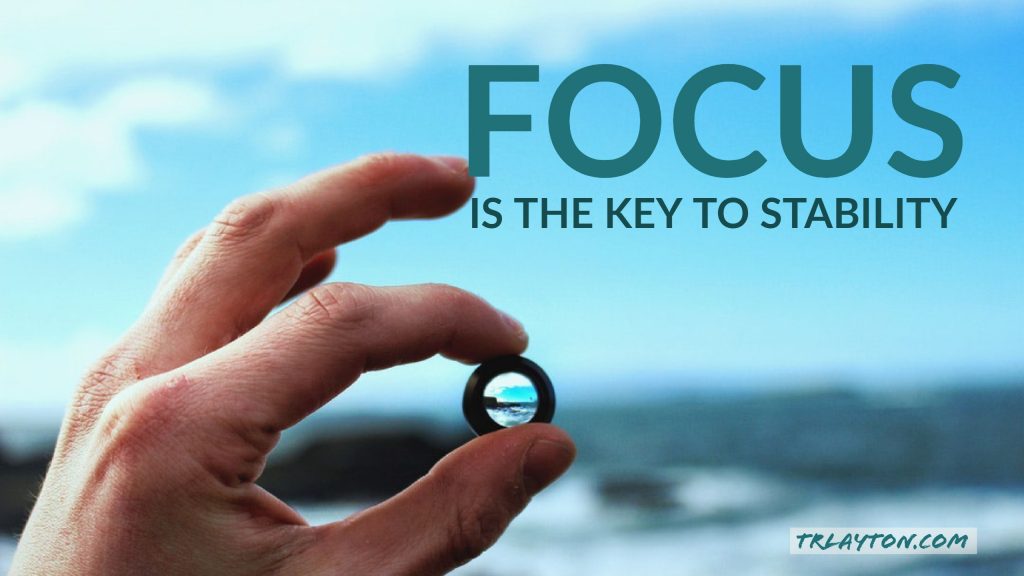
Focus is the key to stability.
Happiness is a mental state or “place”. Stability, on the other hand, is a characteristic of mind, more like a condition of physics as with liquid, gas, or solid. Happiness is optional. Some people actually find happiness uncomfortable while for others it is the preferred state. Stability, however, is essential to human functionality.
The mind has a stability scale. At one end is complete instability. At that extreme a person is very dangerous to themselves and others. On the other end is complete stability. At that extreme we refer to people as “a rock” and in that state a person can be a very effective leader and a source of strength for many others. Each person is somewhere on that continuum at all times.
An unstable mind is very uncomfortable and unfortunately it tends to get worse more easily than better. Much like a nuclear reactor approaching meltdown there is an acceleration as one approaches the unstable end of the scale.
The same can be said about the stable end which is why “very stable” people can scarcely comprehend instability in others. Being stable seems very easy to them because stability reinforces itself and becomes increasingly more stable.
Many lives are led stuck in the magnetic field between the two poles. Pulled slightly stable, then pulled slightly unstable. Feeling correspondingly comfortable and uncomfortable.
As solid water (ice) is ineffective in a fire hose, an unstable mind is ineffective in facing the challenges and opportunities of human life.
For our lives to work optimally per the Design, we need stability in our minds.
To move one’s mind into a state of stability, one simply has to focus.
Consider the ice skater or dancer who’s routine includes a fast spin. In order to maintain the spin without losing their place or becoming dizzy, they learn to find a single point and focus on it like an anchor of perspective.
The same principle is given at sea for motion sickness in a storm. Find a point on the horizon which appears calm and focus on it. The rolling of the ship soon becomes secondary because the focus point is fixed.
Apply the same principle to your thinking if you want stability of mind. And you do.
Choose a focus in each key area. Vocation. Community. Family. Hobbies. Spiritual. Health.
Do that and your mind will take care of itself because the thing to focus on for mental health (stability) is focus itself.


